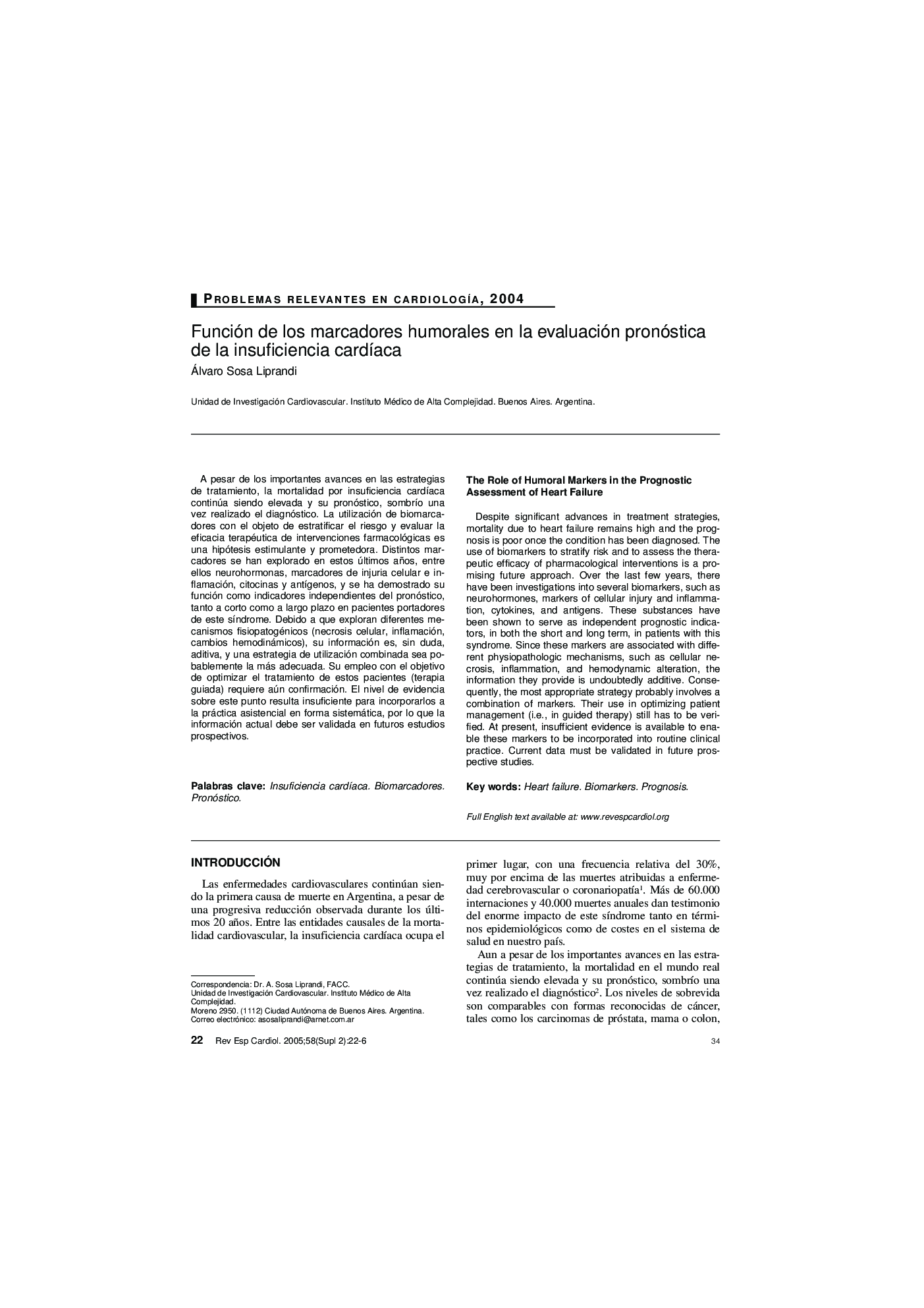| Article ID | Journal | Published Year | Pages | File Type |
|---|---|---|---|---|
| 9181402 | Revista Española de Cardiología | 2005 | 5 Pages |
Abstract
Despite significant advances in treatment strategies, mortality due to heart failure remains high and the prognosis is poor once the condition has been diagnosed. The use of biomarkers to stratify risk and to assess the therapeutic efficacy of pharmacological interventions is a promising future approach. Over the last few years, there have been investigations into several biomarkers, such as neurohormones, markers of cellular injury and inflammation, cytokines, and antigens. These substances have been shown to serve as independent prognostic indicators, in both the short and long term, in patients with this syndrome. Since these markers are associated with different physiopathologic mechanisms, such as cellular necrosis, inflammation, and hemodynamic alteration, the information they provide is undoubtedly additive. Consequently, the most appropriate strategy probably involves a combination of markers. Their use in optimizing patient management (i.e., in guided therapy) still has to be verified. At present, insufficient evidence is available to enable these markers to be incorporated into routine clinical practice. Current data must be validated in future prospective studies.
Related Topics
Health Sciences
Medicine and Dentistry
Cardiology and Cardiovascular Medicine
Authors
Álvaro Sosa Liprandi,
